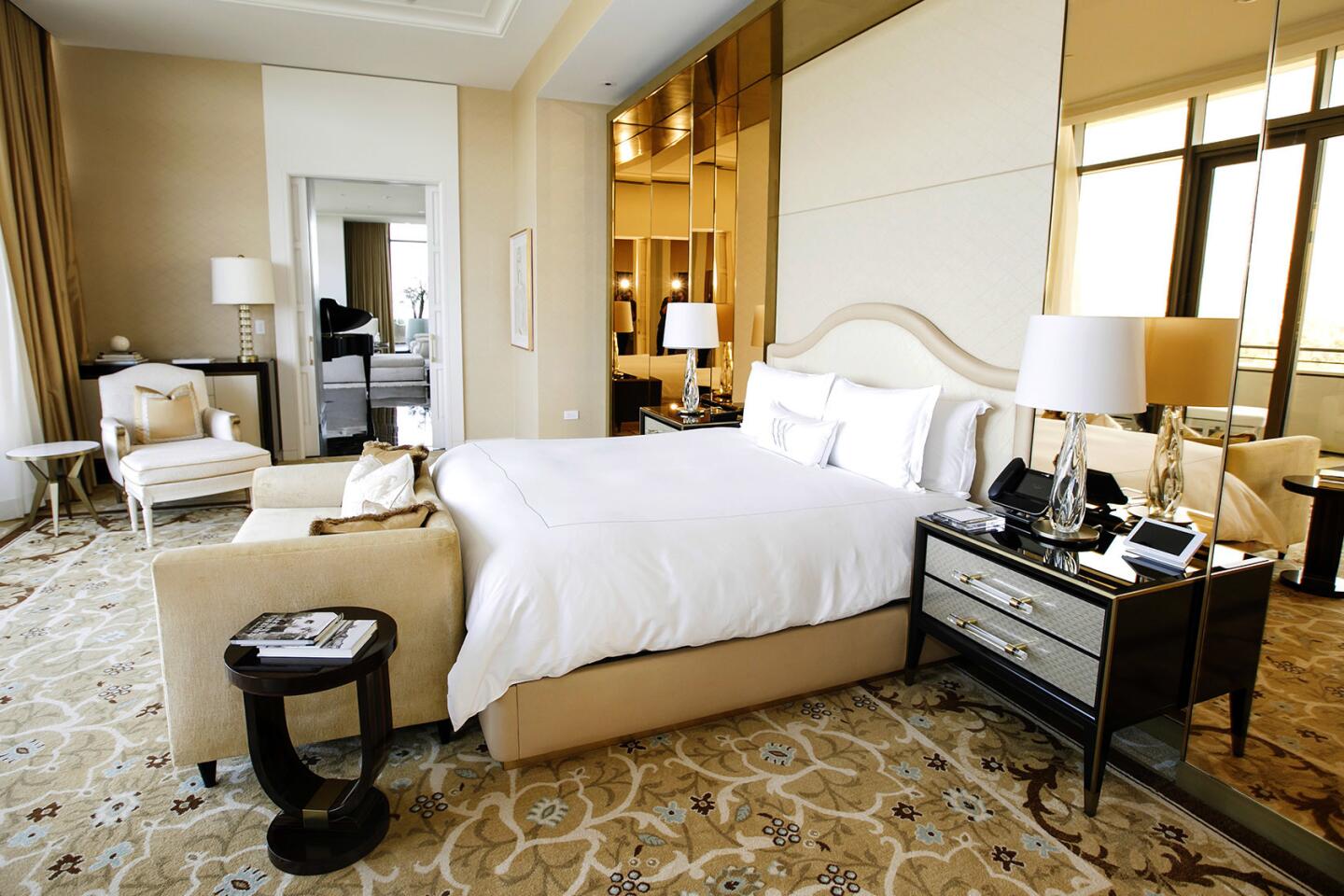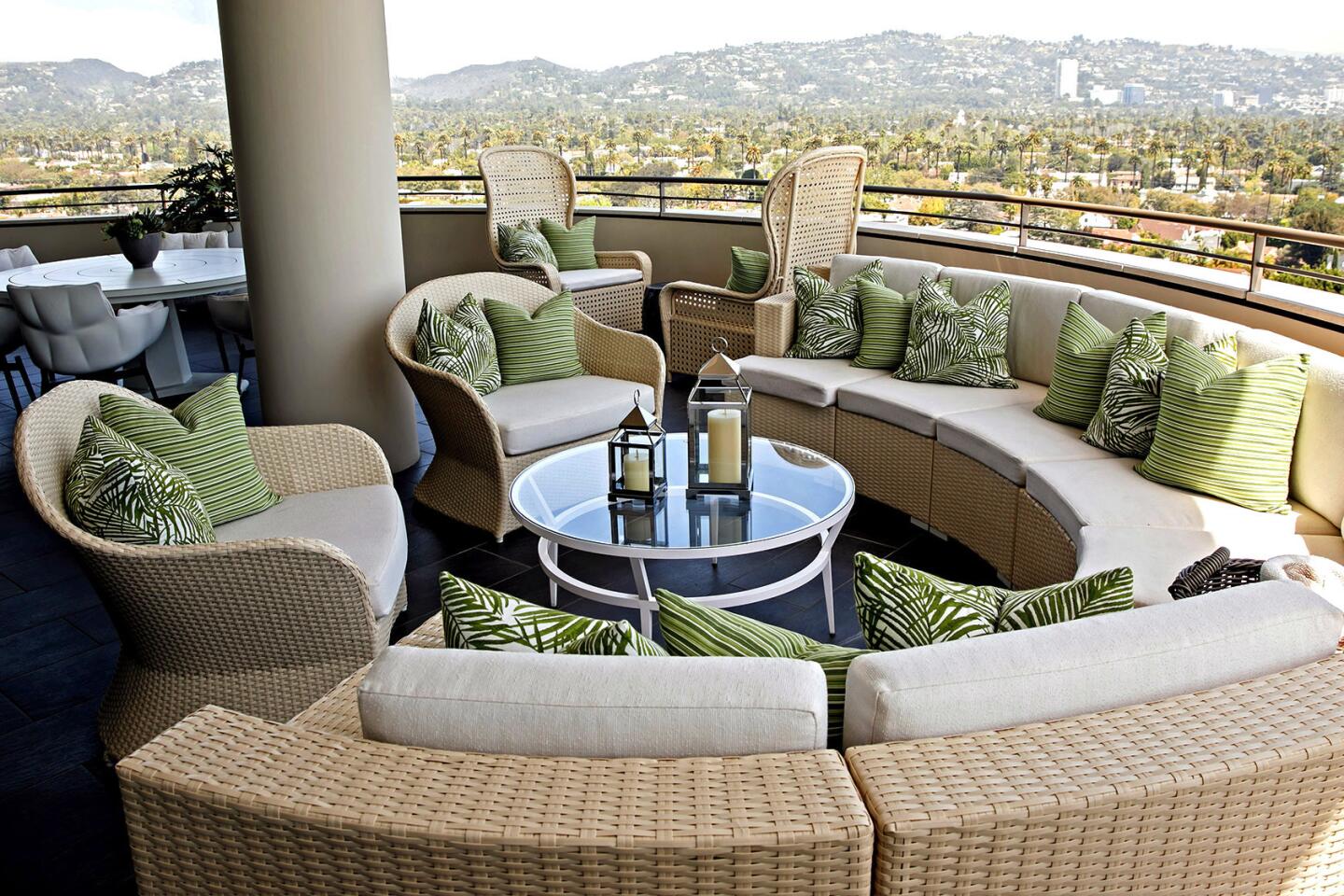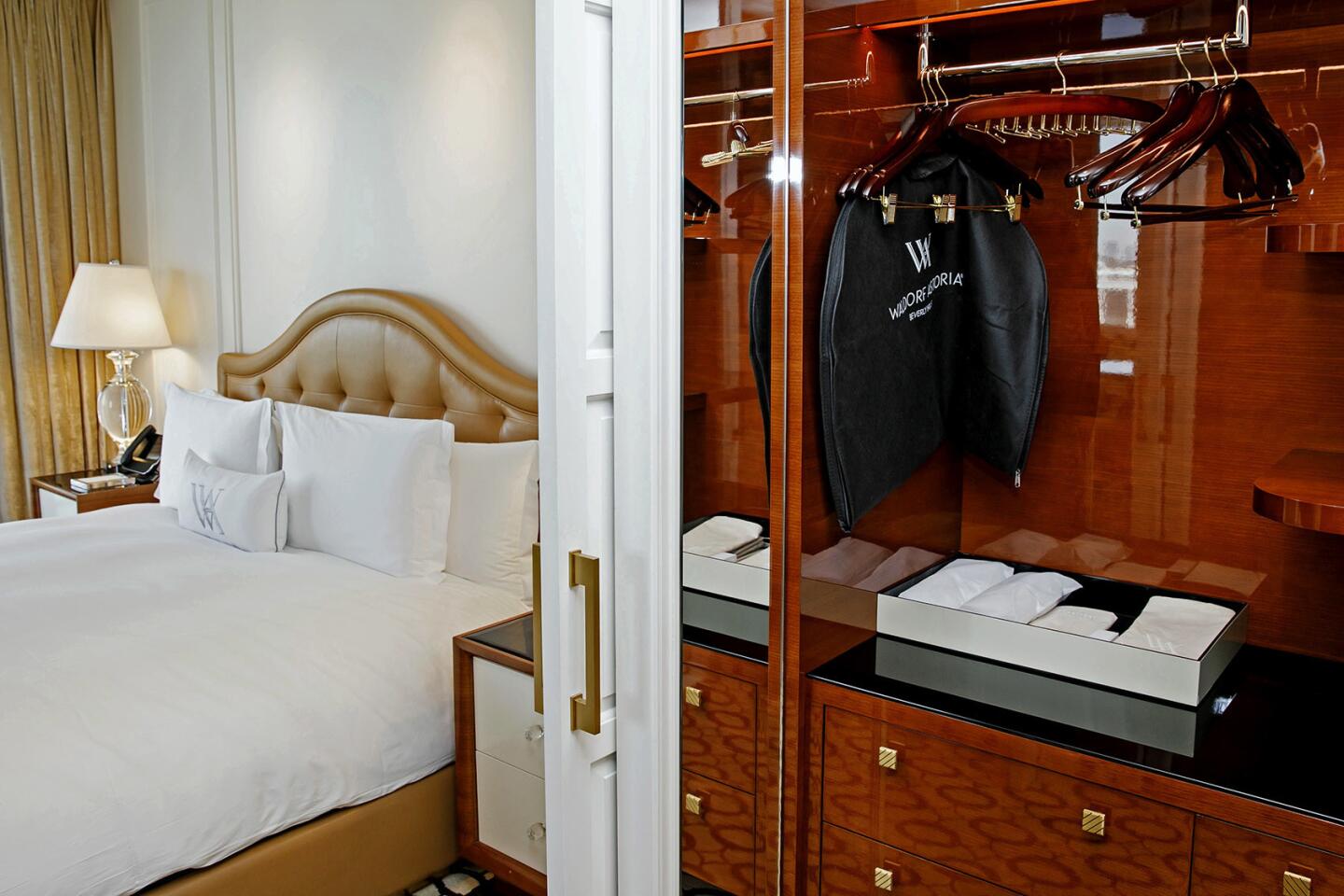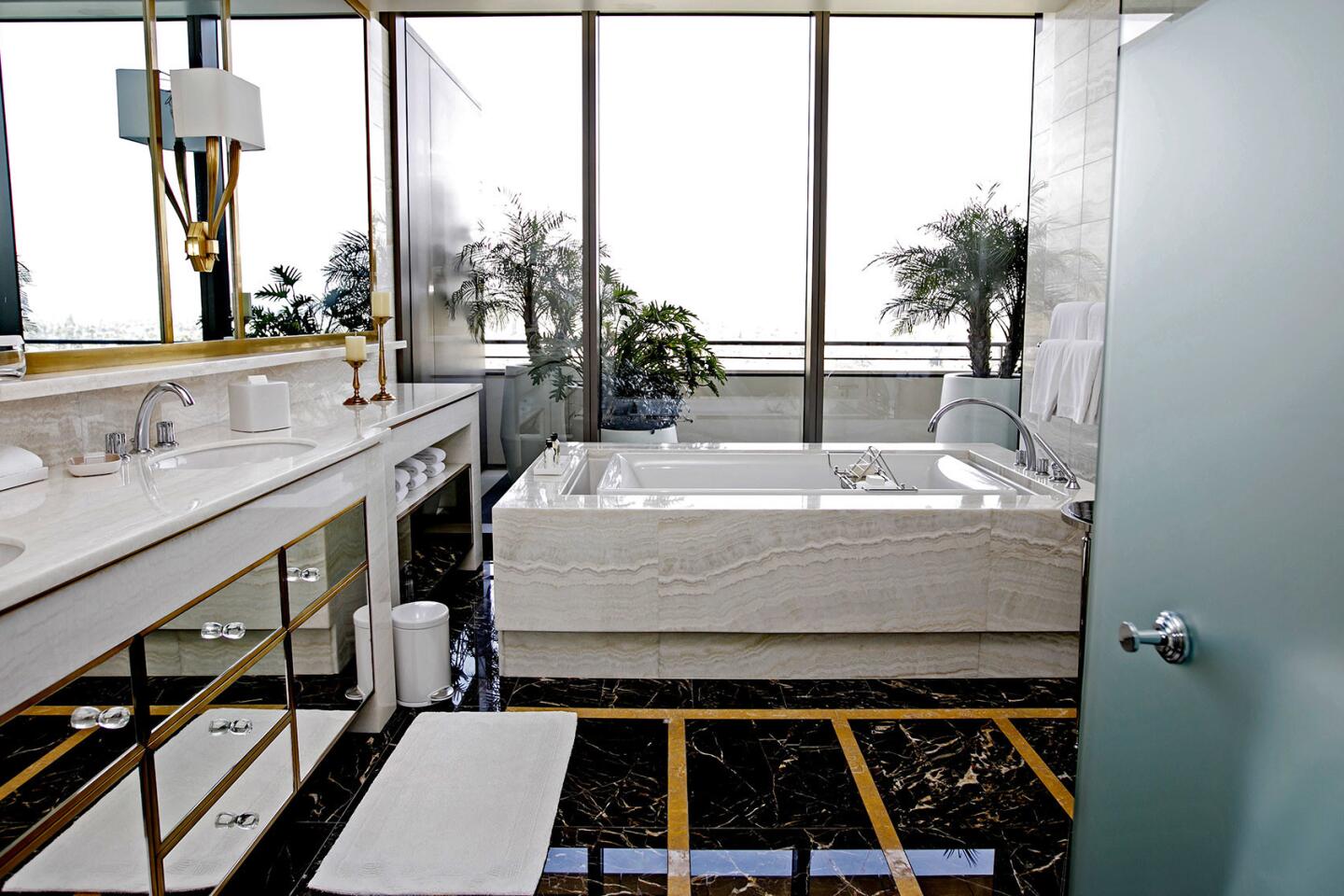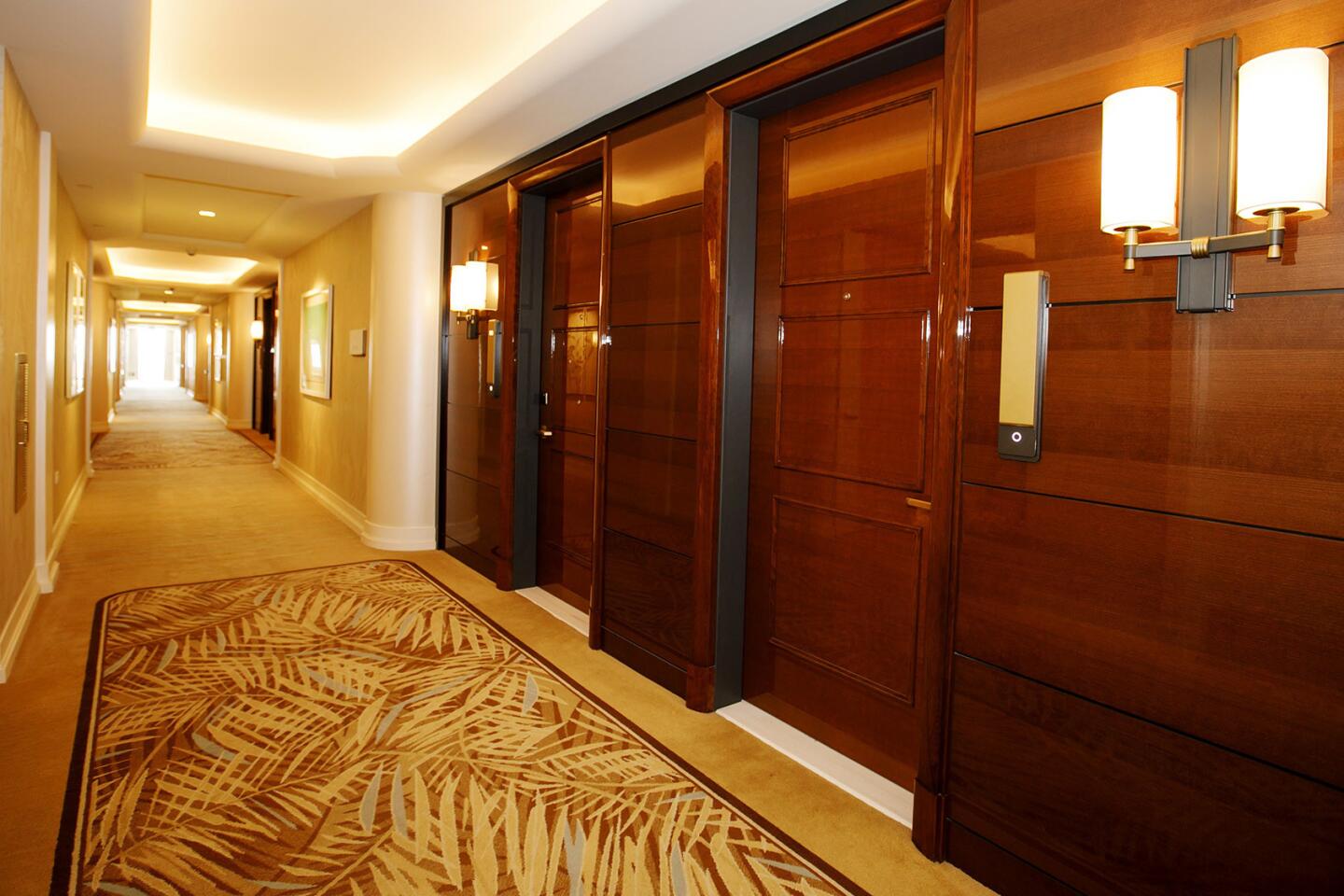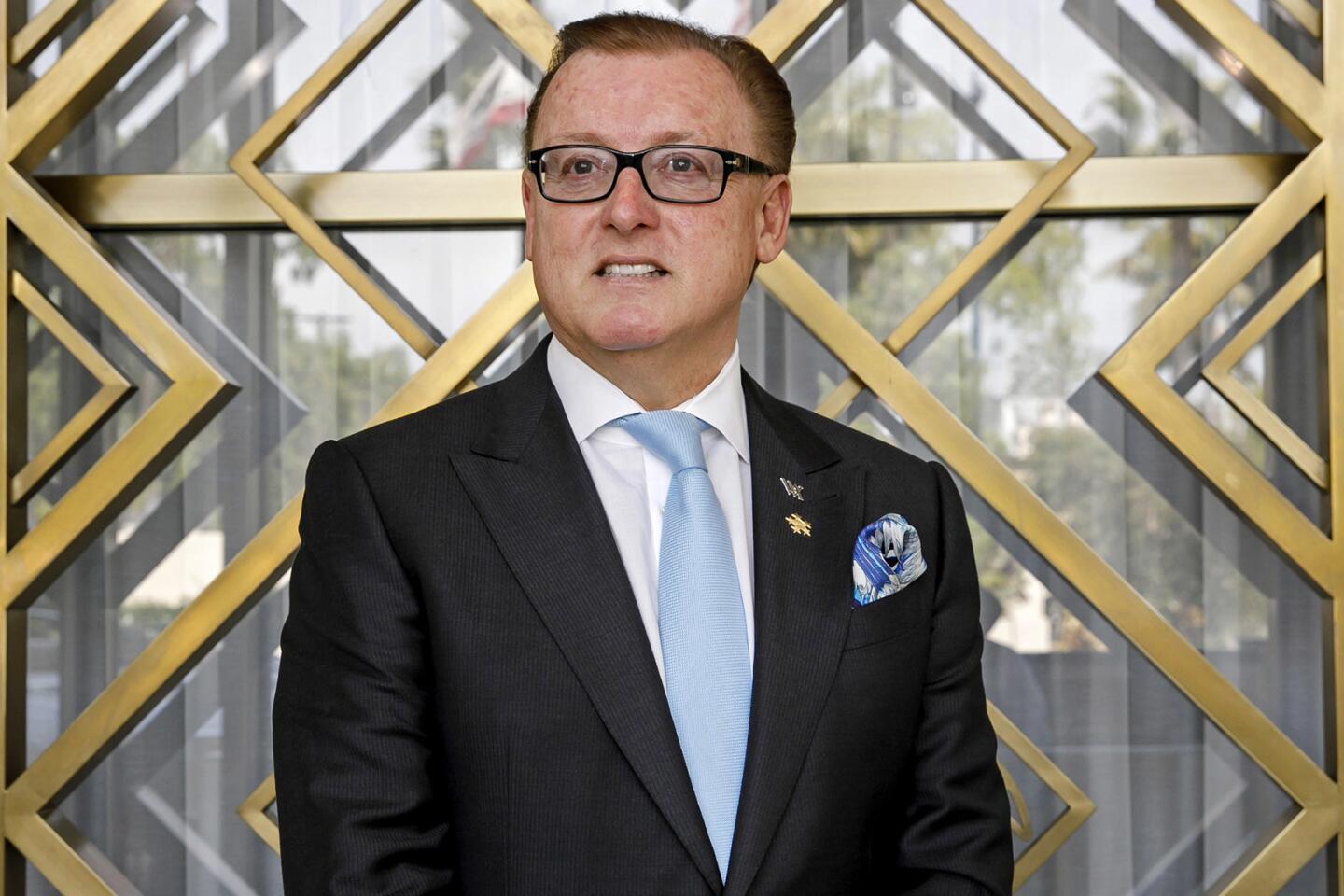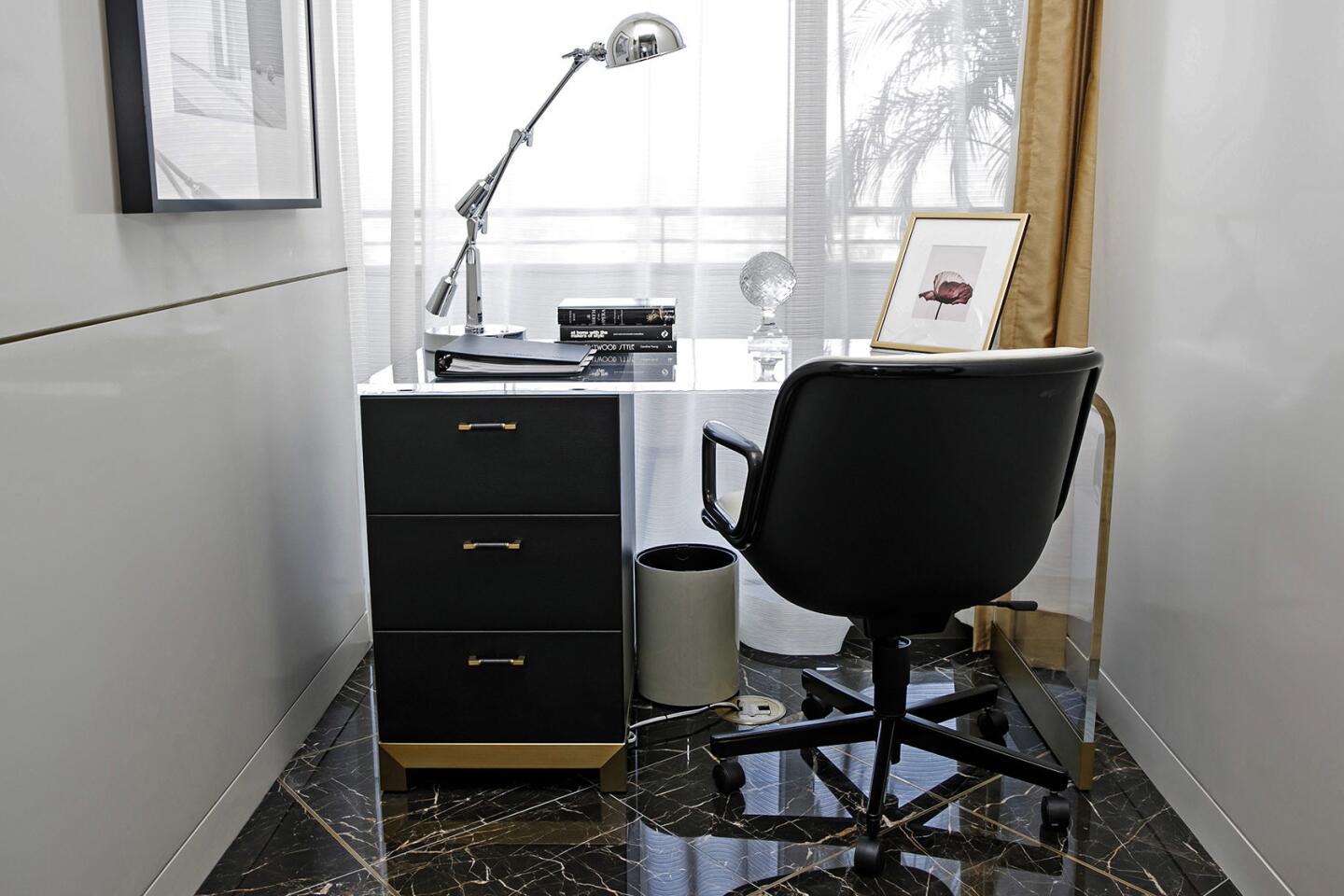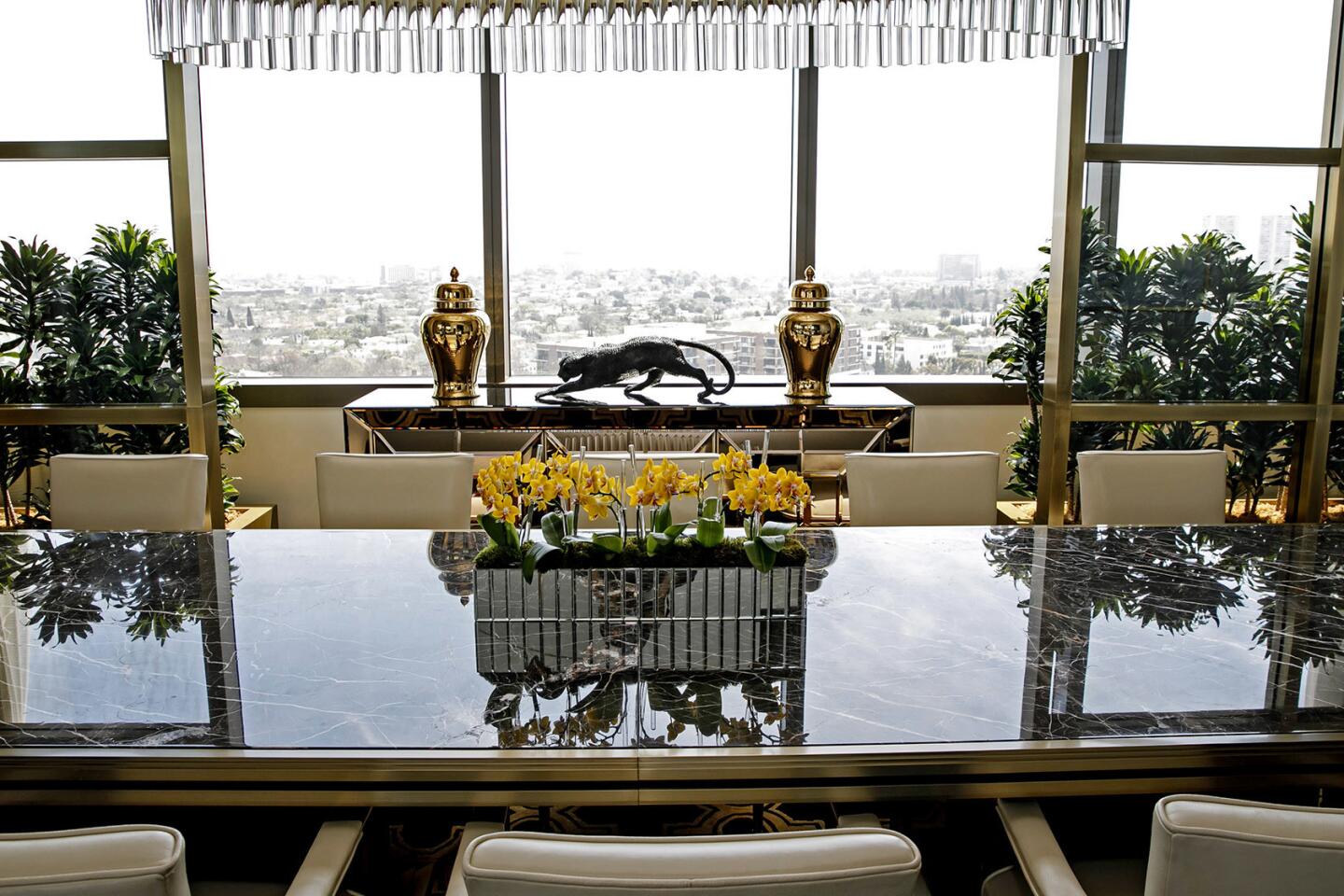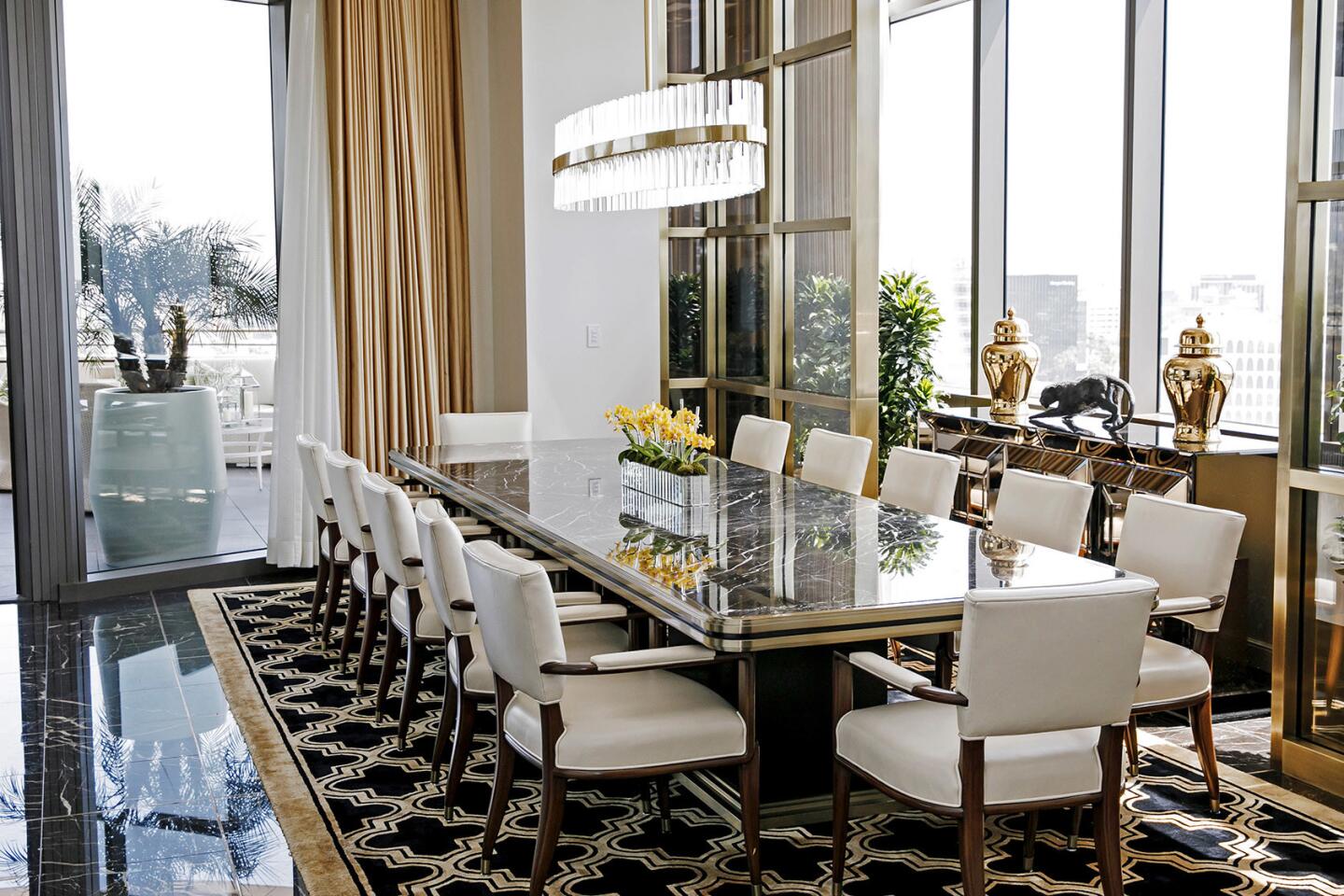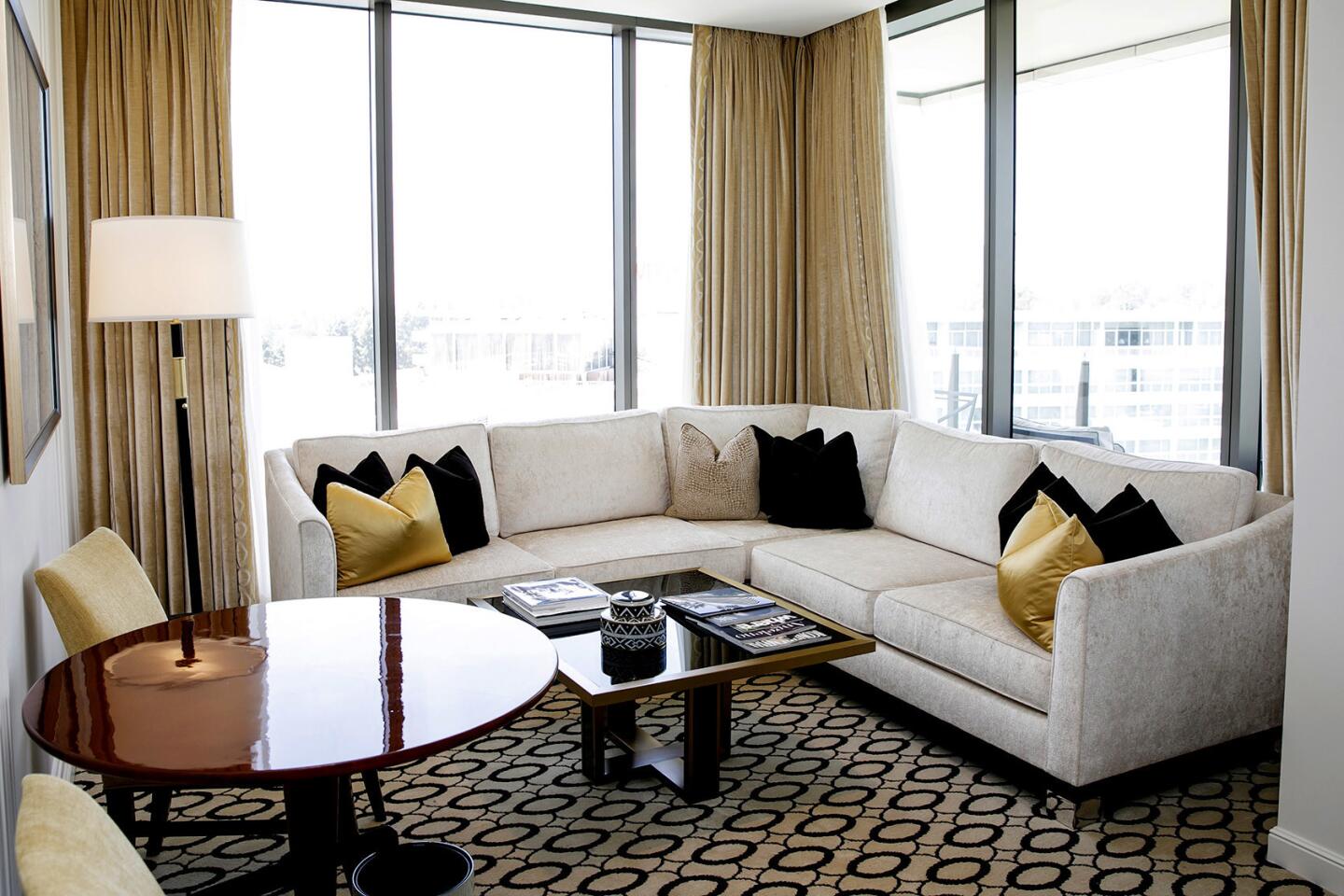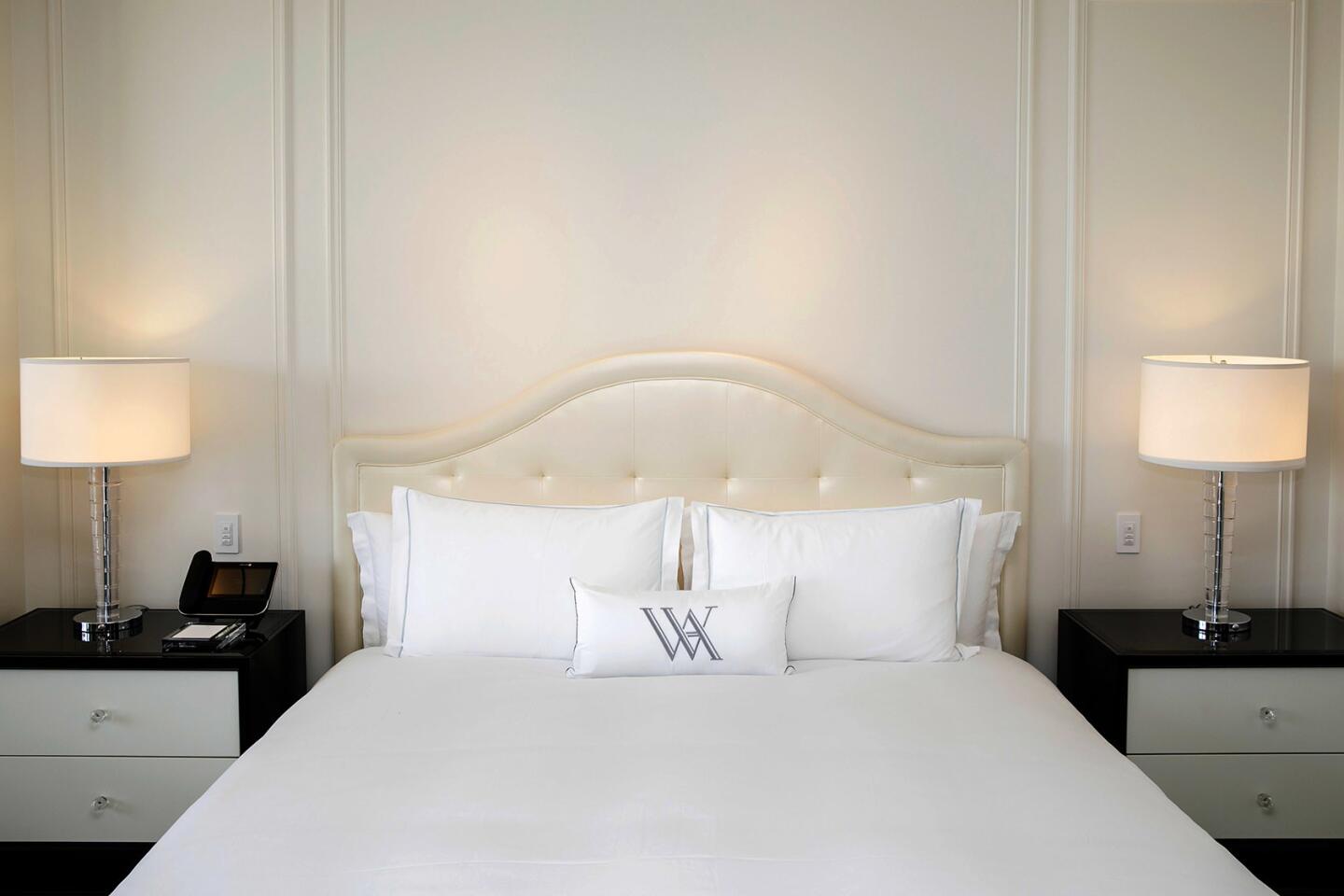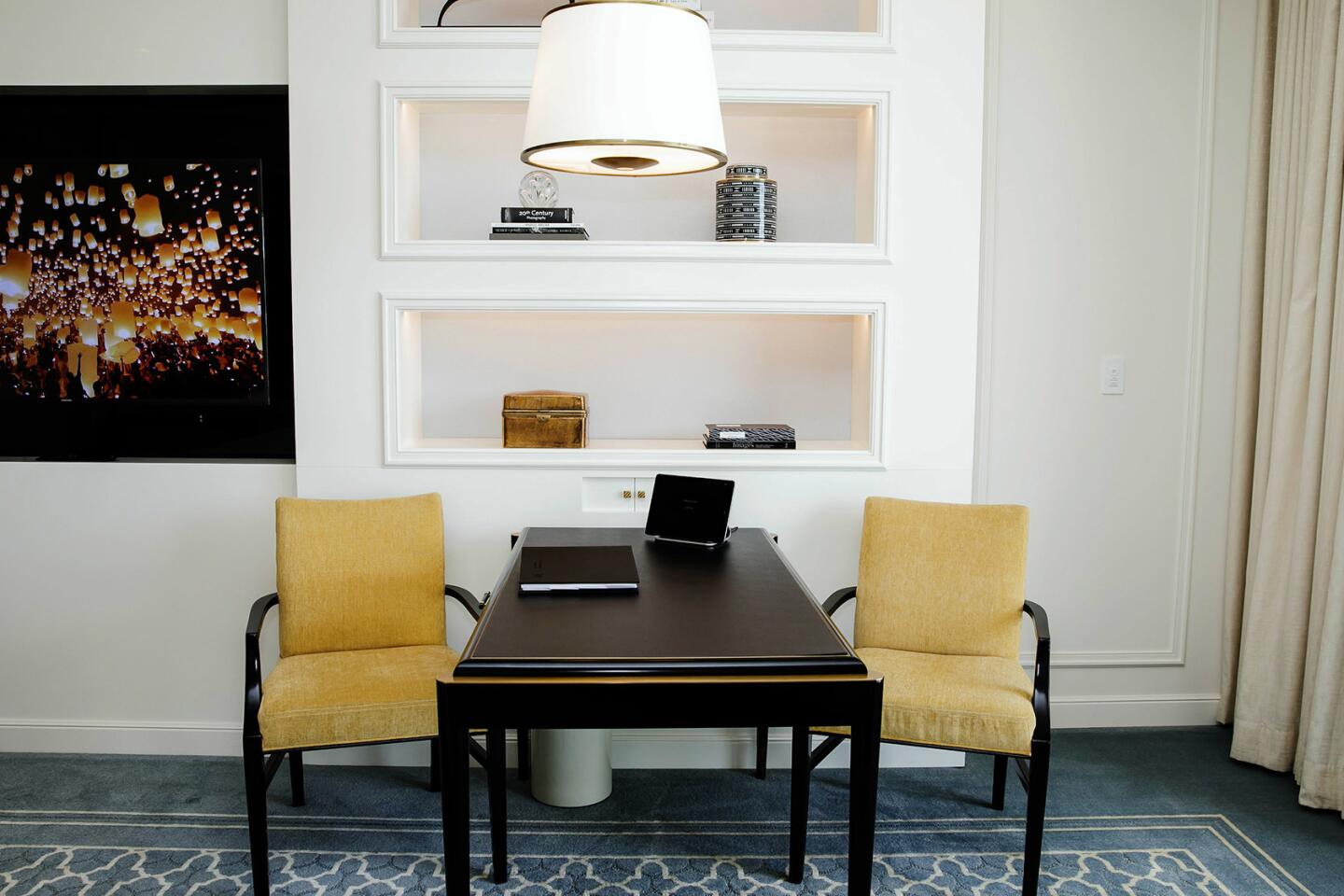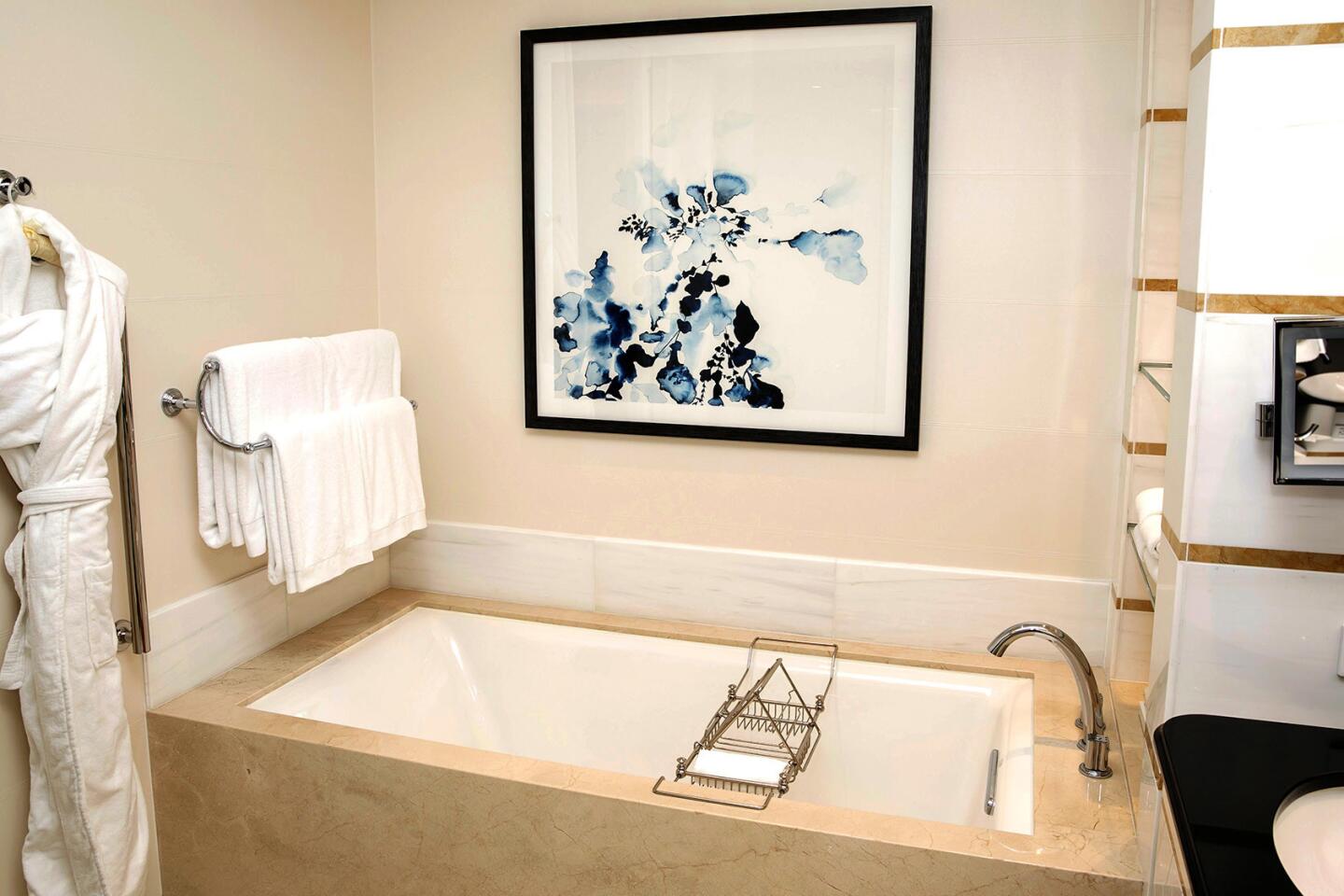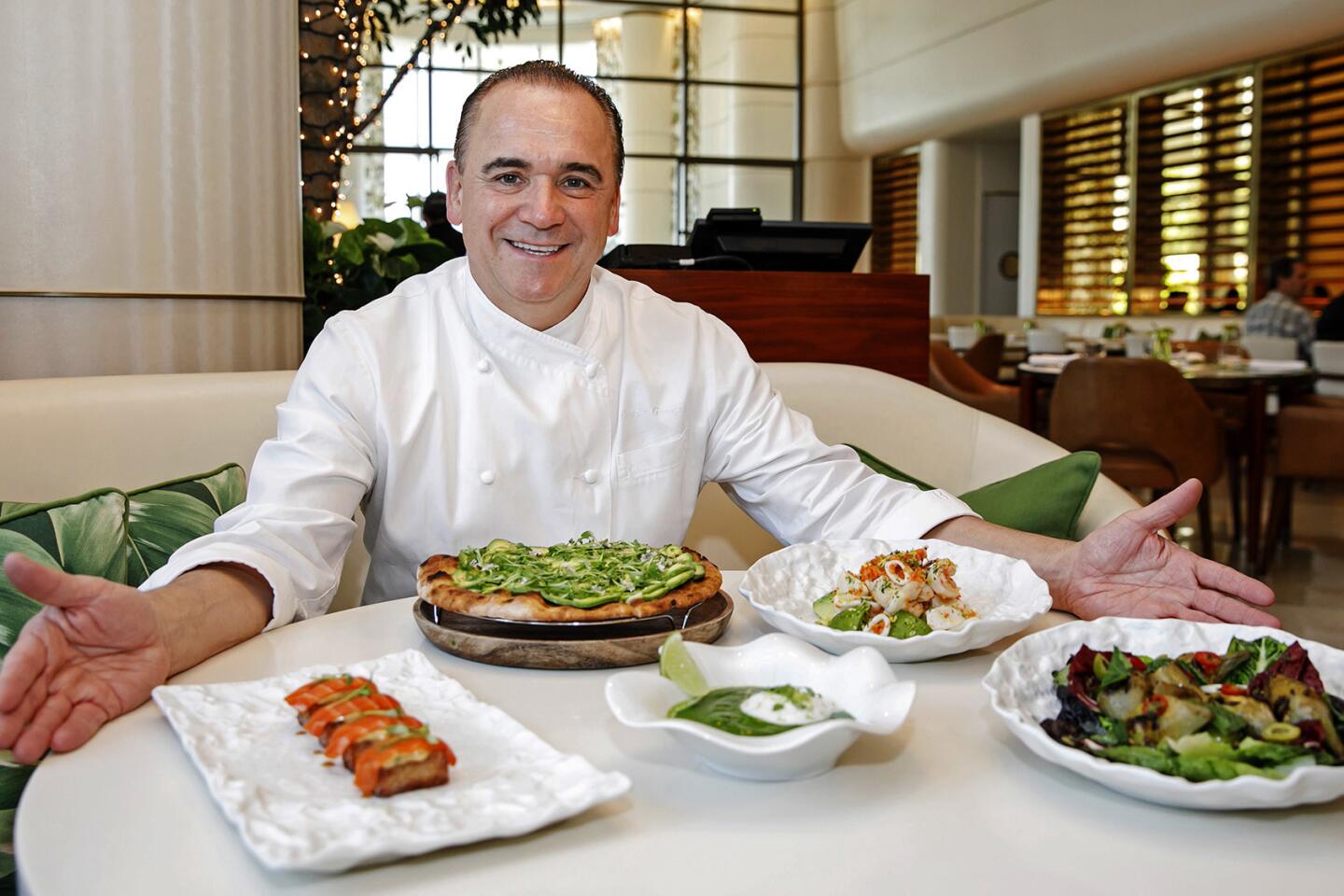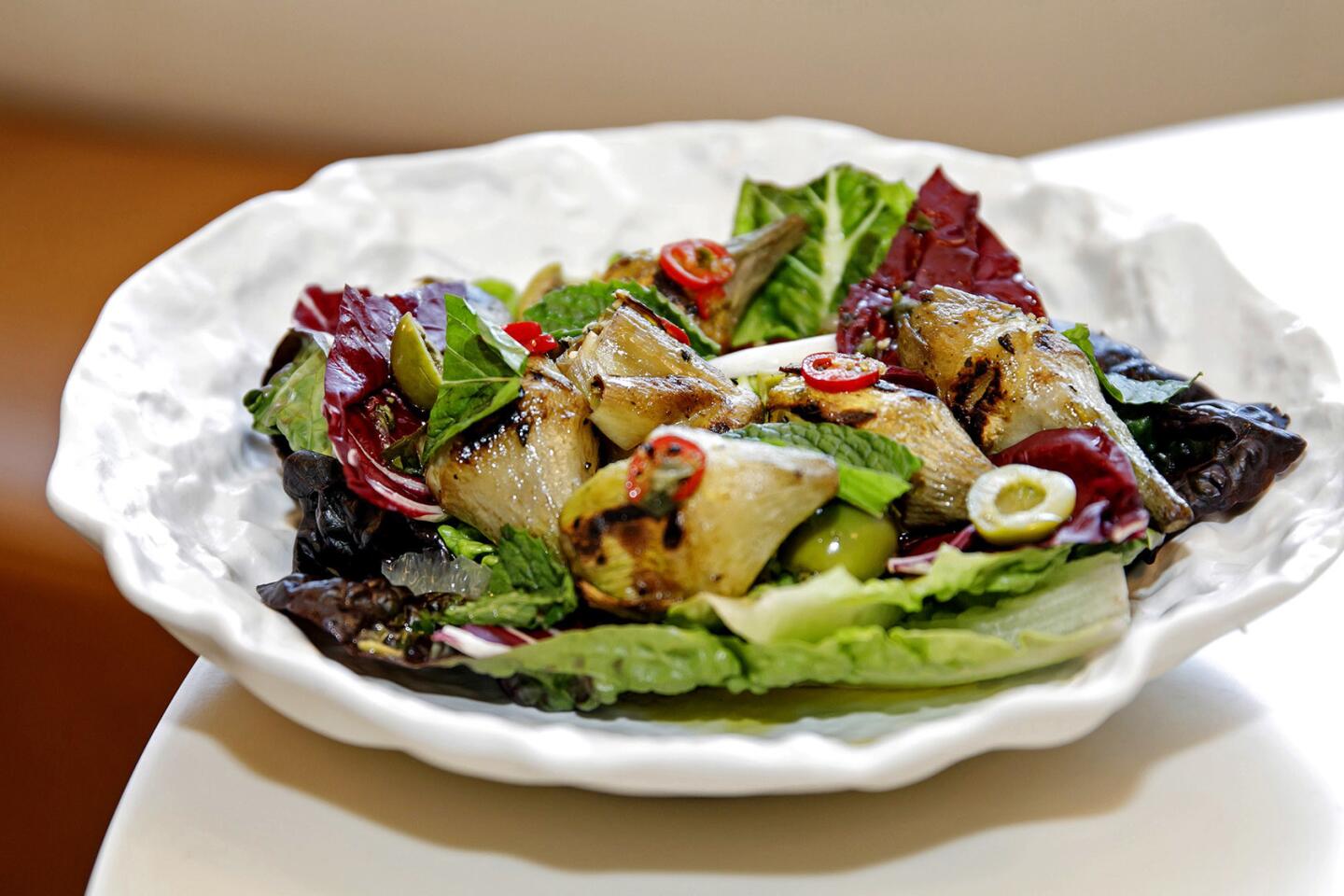Welcome to L.A.’s luxury hotel boom, featuring $20,000 suites and James Bond exotic cars
At the newest five-star hotel around Los Angeles, a massive bronze chandelier hangs from its nearly three-story Art Deco lobby, suffused with the scent of fresh-cut roses.
Upstairs, each room is fitted with floor-to-ceiling windows that open to balconies with views of Santa Monica Bay on one side and the Hollywood sign on the other.
For the record:
9:40 a.m. April 20, 2018A previous version of this story said the Beverly Hilton Hotel has a five-star rating with Forbes Travel Guide. It has a four-star rating.
Each guest is pampered too, assigned a personal concierge to pick up dry cleaning, book dinner reservations and snag tickets to the Dodgers or, if preferred, the Los Angeles Philharmonic Orchestra.
Welcome to the five-star Waldorf Astoria Beverly Hills, a $200-million hotel that opened last year amid a worldwide boom of high-end hospitality construction that has benefited Los Angeles.
During the Great Recession, developers put a hold on such ultra-luxury hotels, opting instead to build budget inns or overhaul mid-scale lodgings. But now that the economy is thriving and travel demand is at record levels, luxury is back.
“L.A. is becoming the place to be again,” said hotelier Beny Alagem, who built the 12-story Waldorf Astoria Beverly Hills and owns the neighboring four-star Beverly Hilton Hotel. “People like the atmosphere that we created. They like the weather.”
Such talk could be written off as a typical developer boast, but a recent survey by Forbes Travel Guide, which awards the hotel ratings, found that with the addition of the Waldorf Astoria, Los Angeles County is now home to seven five-star hotels, second in the nation only to New York.
The county has added four of those hotels to the list since the recession, including the Montage Beverly Hills in 2010, the refurbished Hotel Bel-Air in 2013 and the Four Seasons Hotel Los Angeles at Beverly Hills in 2014.
That doesn’t include several four-star and other luxury brand hotels, including the SLS Beverly Hills in 2008 or the Ritz-Carlton Los Angeles and the JW Marriott, which both opened in 2010 near the LA Live entertainment district.
Worldwide, Los Angeles County now ranks sixth in five-star lodgings, behind Macau (12), New York (11), Paris (10), London (nine) and Hong Kong (eight).
“To have Los Angeles at that kind of level speaks volumes about where Los Angeles has come to,” said Alan X. Reay, president of the Atlas Hospitality Group.
Los Angeles’ five-star hotels also are charging more than elsewhere. At an average rate of $379 per night last year, the hotels commanded more than even in New York, where the rate averaged $366 a night, according to the booking site Hotels.com.
The domestic hotel boom — from ultra-swanky to dirt cheap — has been fueled by abundant and cheap financing, the strong demand for hotel rooms by Americans eager to travel and increasing growth of overseas investors, especially wealthy Chinese citizens who make real estate investments to earn the right for a U.S. visa, according to Reay.
In Los Angeles County, 23 new hotels opened last year, adding 4,309 rooms, more than any other county in the state, according to an annual study by Atlas Hospitality Group. In addition, 32 more hotels were under construction at year-end.
The construction of ultra-luxury hotels like the Waldorf Astoria also reflects how the Los Angeles area has become a gateway for “both domestic and foreign travel, particularly from China, where the demand for luxury goods and experiences have grown significantly,” said Jerry Inzerillo, chief executive of Forbes Travel Guide.
Posh hotels are not new to Los Angeles. The elegant Hollywood Roosevelt Hotel, which opened in 1927, was a favorite hangout of actors Mary Pickford and Douglas Fairbanks and later became the second home to Marilyn Monroe. The ornate Millennium Biltmore Hotel in downtown Los Angeles hosted the Academy Awards in the 1930s and 1940s.
The travel guide was established in 1958 and long carried the Mobil name before a change of ownership and rebranding in 2009. Los Angeles lodgings began garnering five stars with the Peninsula Beverly Hills 24 years ago. That was followed by the Beverly Hills Hotel in 1996 and the Viceroy L’Ermitage Beverly Hills in 2000.
The Waldorf Astoria Beverly Hills was one of only a handful of hotels worldwide that earned a five-star Forbes rating within 12 months of opening, and it provides the full luxury experience, replete with dressed doormen and doorwomen. The concierges assigned to guests escort them to their rooms, where a small bedside electronic tablet controls the lighting, air conditioning and even the curtains.
Jean-Georges Vongerichten, a renowned French chef who has published several cookbooks, runs the restaurant on the ground floor as well as the eatery on the rooftop. Guests can have the food brought to their rooms and to the cabanas next to the rooftop pool.
Such luxury doesn’t come cheap. The smallest rooms at the Waldorf Astoria Beverly Hills span 537 square feet — much roomier than a typical U.S. hotel room, which averages about 330 square foot — and feature a 110-square-foot terrace. They go for almost $700 per night.
For guests with deeper pockets, the 3,200-square-foot presidential suite, with a private movie theater, gym, kitchen, full bar with an espresso machine, a dining table that seats 12 people and a 1,459-square-foot terrace, goes for $20,000 a night.
But it takes more than luxurious or even over-the-top accommodations to achieve a five-star rating from Forbes. It is considered among the most prestigious hospitality rating systems in the world, with only 199 hotels reaching the five-star standard worldwide this year.
Luxury hotels, of course, must meet the standards of their own high-end brands, such as Waldorf Astoria and Four Seasons, but the Forbes criteria are very specific.
Before Forbes doles out the ratings, the travel guide sends out undercover inspectors who visit hotels anonymously to see whether they meet 900 standards in staff training, amenities and cleanliness. In five-star hotels, staff must be attentive, polite, well-spoken and nattily dressed. The hotel must offer around-the-clock room service, with hot food around the clock. A choice of at least two newspapers must be available and at least two types of snacks served during bar and lounge service.
Forbes even demands that when a guest calls the front desk, the phone should ring no more than three times before it is answered, eliminating the annoyance of seemingly endless rings, said Amanda Frasier, senior vice president for ratings at Forbes Travel Guide.
But maintaining such service at five-star hotels is expensive. During the recession, Reay said, luxury hotels suffered the biggest financial losses in the industry because operators couldn’t cut services or lay off staff to adjust for the drop in demand — or lower room rates — for fear of hurting their image and losing their best customers.
“It is very, very expensive and requires lots of effort,” he said. “It’s worth it now.”
Keeping the rating each year means retaining well-trained workers, said Peter Bowling, managing director of the Waldorf Astoria Beverly Hills.
“The hardest part is maintaining consistency,” he said. “Our goal is to build loyalty among our people so that they stay for the future success of the hotel. Guests like to see familiar faces.”
But in a competitive market, the Waldorf Astoria knows how to cater to its guests’ dreams of living like an A-list L.A. celeb or a famous British spy, if only for a few days.
The hotel recently launched a promotion that offers guests who book a special package free use of one of two Aston Martin sports cars — James Bonds’ favorite — for four hours a day throughout their stay. The DB11 grand-touring vehicle and Vanquish S cost from $200,000 to $300,000 each.
The packages range from $845 per night to $3,850 per night, depending on the size of the room.
Such luxury “speaks to the demand and appeal of the L.A. brand,” said Colm O’Callaghan, managing director of the rival Montage Hotel. “It resonates with people.”
To read this article in Spanish, click here
To read more about the travel and tourism industries, follow @hugomartin on Twitter.
